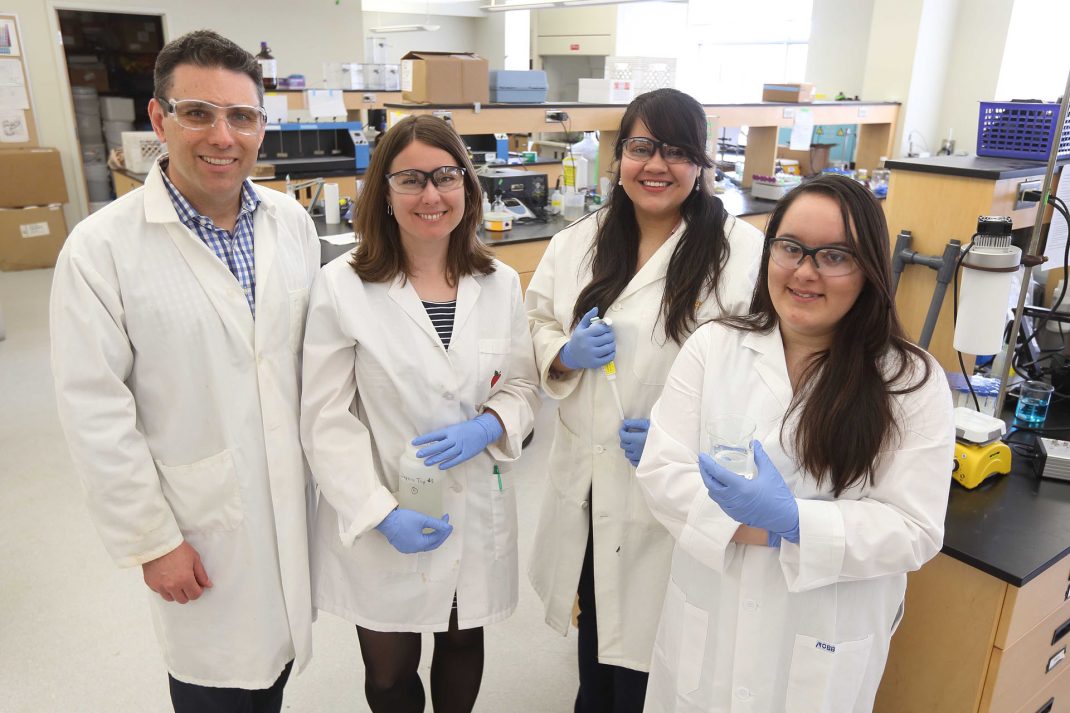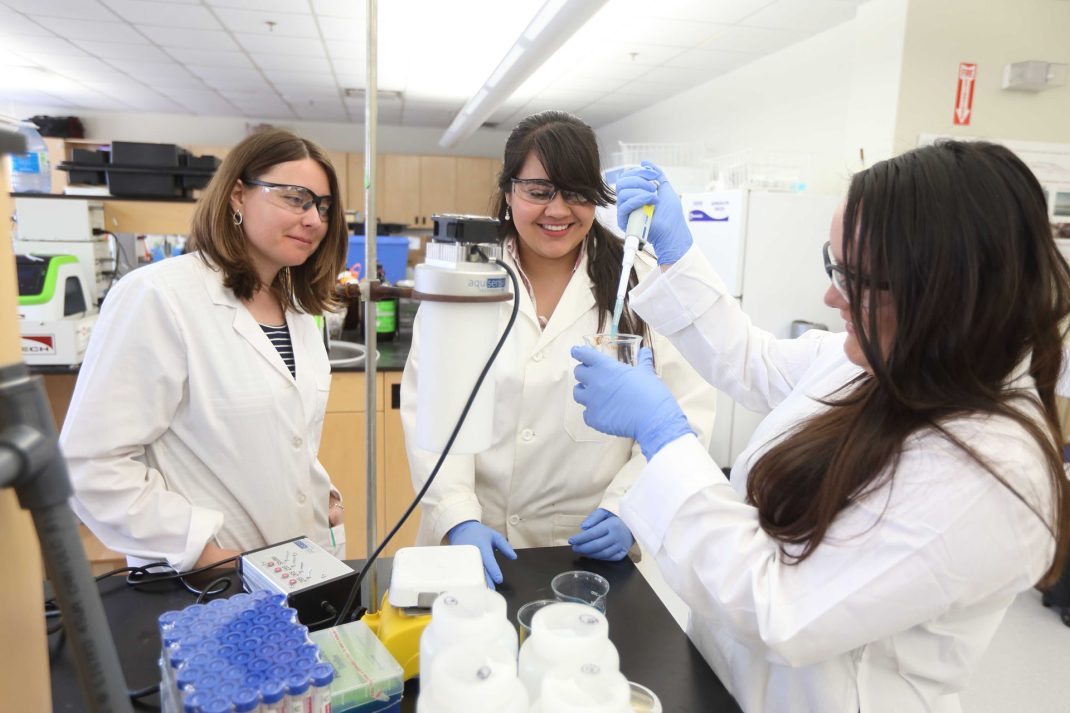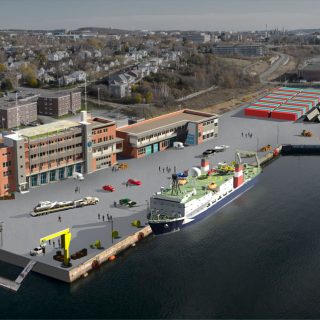Our Stories
Access to safe drinking water is essential for any community, but for those in Canada’s remote northern areas, guaranteeing such access can be difficult. In the hamlet of Pond Inlet, Nunavut, water is drawn from a lake, chlorinated, and transported by specialized trucks to the community’s homes and businesses. The water is stored on site in storage tanks.
Dr. Graham Gagnon and Dr. Stephanie Gora from Dalhousie University’s Centre for Water Resources Studies (CWRS) and Tim Soucie from Pond Inlet are leading efforts to advance the community’s ability to provide clean drinking water.
This is one of nine research projects supported by Irving Shipbuilding and the Nunavut Research Institute, who in 2016 awarded $2 million in funding to applied Arctic research projects focused on areas of importance to Canada’s Arctic communities and marine industry.
In February, Drs. Gagnon and Gora travelled to Nunavut, where they met with local stakeholders and conducted testing on the water held in residential storage tanks and plumbing systems for contaminants such as lead and biological activity.

Based on the results of this preliminary testing, a pilot program to monitor biofilm growth in water storage tanks was developed that will help determine how frequently storage tanks should be cleaned to ensure that they continue to provide safe drinking water. An initiative to identify the sources and causes of lead contamination in Pond Inlet’s drinking water was also designed. Both studies were launched in May 2018.
Crucial to this project is the exchange of knowledge between the CWRS team and local stakeholders in Nunavut. Knowledge transfer workshops have been and will continue to be organized by the project team to share technical expertise and lived experiences surrounding water quality.
“These knowledge transfer workshops allow for the CWRS team and Pond Inlet’s residents to get together and create a plan that focuses on improving the quality of life for the community and is respectful of traditional ways of Arctic living”, says Dr. Gagnon. “It is truly a community-oriented project with what we hope will have a wide-reaching impact.”
Irving Shipbuilding is proud to fund projects like these through the Value Proposition commitment under Canada’s National Shipbuilding Strategy. Through this commitment, Irving Shipbuilding will invest 0.5% of contract revenues in projects that will help create a sustainable marine industry. The Value Proposition commitments on the Arctic and Offshore Patrol Ships, currently under construction at the Halifax Shipyard, will provide approximately $12.5 million in funding to projects across Canada.



